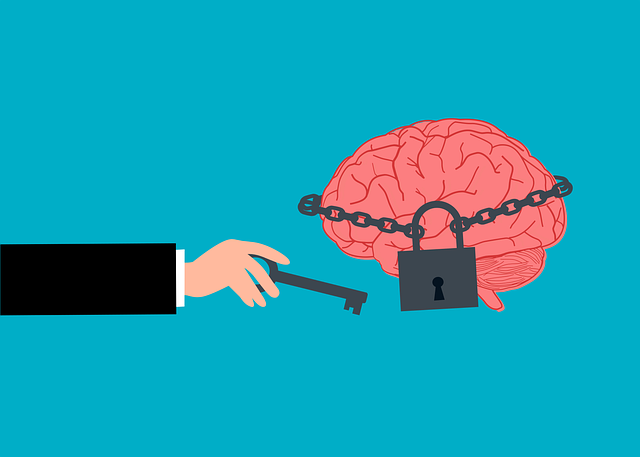Longmont Chronic Pain Therapy provides a comprehensive approach to managing chronic pain, addressing physical and mental health aspects. Their crisis intervention strategies include cognitive behavioral therapy, mindfulness, social skills training, and education programs. By empowering individuals with self-care routines, stress management techniques, and support networks, they enhance resilience and improve the quality of life for those dealing with long-term pain in Longmont.
In the realm of healthcare, crisis intervention plays a pivotal role in managing chronic pain. This article explores essential strategies tailored to Longmont Chronic Pain Therapy, offering guidance for professionals supporting patients facing acute exacerbations. From understanding the nuances of crisis intervention in chronic pain management to implementing effective support systems, we delve into actionable steps. By examining these approaches, healthcare providers can enhance their ability to assist sufferers during challenging times, ultimately improving long-term outcomes in Longmont chronic pain therapy settings.
- Understanding Crisis Intervention in Chronic Pain Management
- Longmont Chronic Pain Therapy: An Overview
- Strategies for Effective Crisis Intervention
- Implementing Guidance and Support for Chronic Pain Sufferers
Understanding Crisis Intervention in Chronic Pain Management

Crisis intervention plays a pivotal role in managing chronic pain, offering much-needed support during intense periods. In the context of Longmont Chronic Pain Therapy, understanding this process involves recognizing that pain crises can be triggered by various factors, including stress and mental health challenges. Effective crisis intervention strategies aim to stabilize individuals, provide immediate relief, and guide them towards long-term management solutions.
One key aspect is empowering patients with self-care routine development for better mental health. This includes teaching coping mechanisms, stress management techniques, and promoting healthy habits that can mitigate pain exacerbations. Additionally, public awareness campaigns development can play a crucial role in educating communities about chronic pain, reducing stigma, and encouraging early intervention. By integrating these strategies, Longmont Chronic Pain Therapy centers can offer comprehensive care, ensuring individuals navigate their pain journeys with enhanced resilience and improved quality of life.
Longmont Chronic Pain Therapy: An Overview

In Longmont, Colorado, Chronic Pain Therapy offers a specialized approach to managing long-term pain conditions. This therapeutic model recognizes that chronic pain is a complex issue often intertwined with physical, emotional, and psychological aspects. The goal is not just to alleviate symptoms but to empower individuals to take control of their well-being. Skilled healthcare providers in Longmont employ various techniques such as cognitive behavioral therapy, mindfulness practices, and medication management to address the multifaceted nature of chronic pain.
For those seeking comprehensive care, Longmont’s medical facilities emphasize cultural competency training for healthcare providers. This includes an understanding of Cultural Sensitivity in Mental Healthcare Practice, ensuring diverse patients receive tailored support. By integrating these strategies, Longmont Chronic Pain Therapy enhances the confidence of both clients and practitioners, fostering a more inclusive and effective treatment environment.
Strategies for Effective Crisis Intervention

In the context of Longmont Chronic Pain Therapy, effective crisis intervention strategies are paramount for addressing acute pain episodes and improving patients’ overall mental wellness. One powerful tool is Mental Wellness Journaling Exercise Guidance. Encouraging patients to document their experiences, emotions, and coping mechanisms can provide valuable insights into their pain management journey. This practice allows individuals to reflect on triggers, identify effective strategies, and track progress, fostering a sense of agency over their chronic pain.
Complementary to this, Social Skills Training plays a significant role in crisis intervention. Pain can isolate individuals, so group therapy sessions or structured social activities facilitate connection and support. Sharing experiences and learning from peers empowers patients with new coping mechanisms and builds a network of understanding. Furthermore, Mental Health Education Programs Design tailored to the unique challenges of chronic pain can empower individuals to navigate their condition more effectively. Educating patients about pain physiology, treatment options, and self-management techniques equips them with knowledge to advocate for their care and make informed decisions during crises.
Implementing Guidance and Support for Chronic Pain Sufferers

For individuals grappling with chronic pain, a multifaceted approach to crisis intervention is essential. Longmont Chronic Pain Therapy emphasizes the integration of various strategies tailored to address both physical and mental aspects of suffering. Beyond conventional medical treatments, therapists often incorporate compassion cultivation practices and self-awareness exercises as part of the therapeutic process. These techniques foster a sense of emotional regulation and coping mechanisms, empowering individuals to manage their pain more effectively.
The support system plays a pivotal role in crisis intervention for chronic pain sufferers. Therapists guide patients through self-awareness exercises, enabling them to recognize triggers and develop personal strategies for distress management. By cultivating compassion towards themselves and others, individuals can foster a supportive mindset that enhances resilience during challenging times. This holistic approach, combining mental wellness support with practical tools, is pivotal in helping those affected by chronic pain navigate their journey towards improved quality of life.
In conclusion, effective crisis intervention in chronic pain management requires a multifaceted approach. By integrating strategies such as those discussed for Longmont Chronic Pain Therapy, healthcare professionals can provide crucial guidance and support to sufferers. Understanding the nuances of crisis intervention, alongside implementing these proven techniques, ultimately enhances patient care, enabling individuals to navigate their pain journey with resilience and hope.














